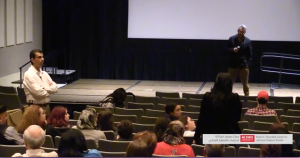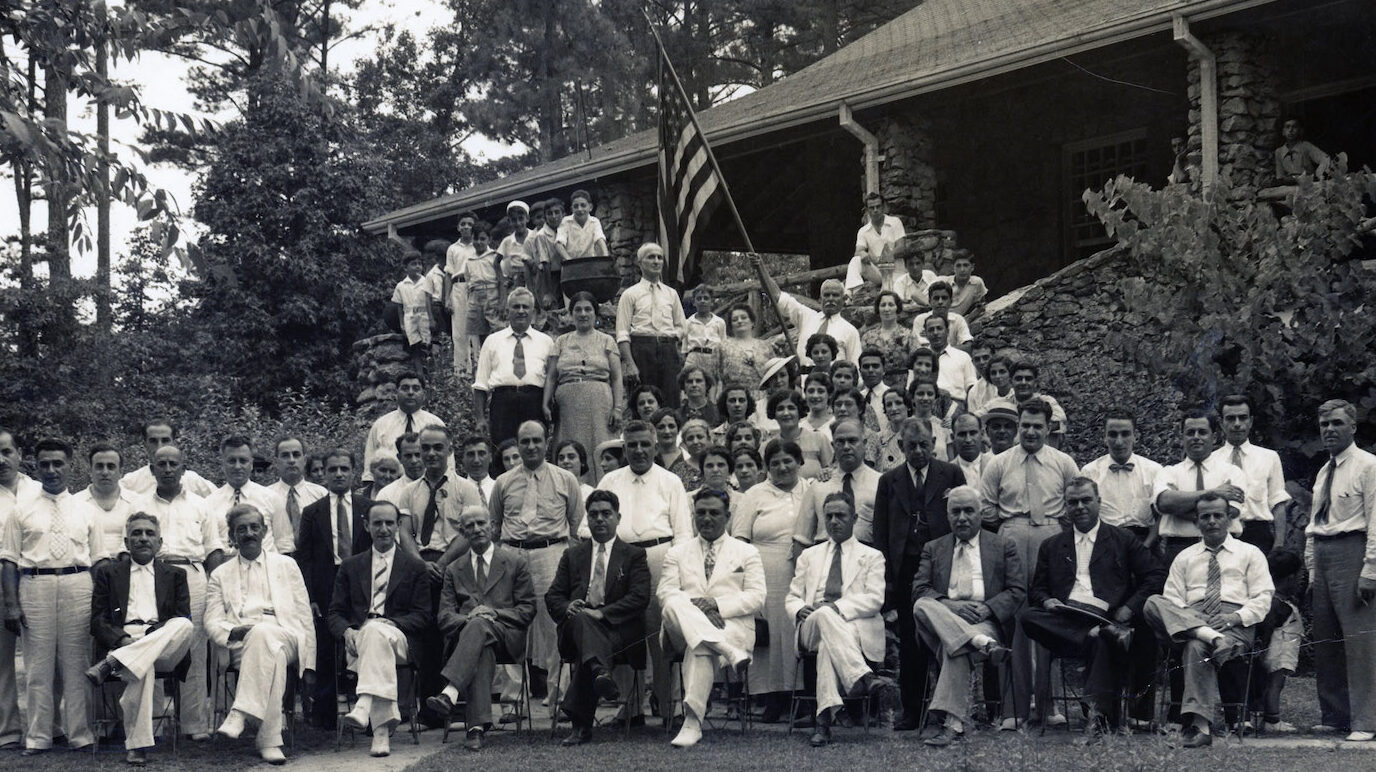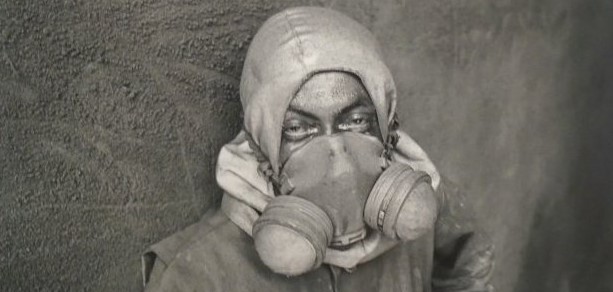Philippe Aractinji’s ‘Mirath’ at NC State
This post is written by Dr. Akram Khater, Director, Moise A. Khayrallah Center for Lebanese Diaspora Studies and a Professor of Middle East Studies at North Carolina State University. Miss the event? You can watch the Q&A on the Center’s YouTube channel!
The Lebanese have been leaving their villages and cities for over 160 years. More often than not, their migration–internal or beyond–has been driven by economic needs and a desire to fulfill their dreams of a better life, one that their ancestral land cannot afford them. Yet migration, forced or voluntary, comes at an emotional and physical cost; there is gain but also a deep sense of loss of family, home and culture. All these complex feelings intermixed on the evening of January 20 when the Khayrallah Center for Lebanese Diaspora Studies hosted the premiere screening of the film Mirath at NC State University. With 250 people from the university and community in attendance, director Philippe Aractinji screened his emotionally moving film for only the third time in the US, after prior showings in San Francisco and New York. Mirath is an autobiography of sorts, looking at generations of the Aractinji family who had to leave home for another place beginning in the 1860s and through the most recent turmoil in Lebanon in 2006. In that year Director Philippe Aractingi had to leave his home to settle elsewhere for the third time in his life. While he and his family are evacuated to France onboard a military ship, he realizes that his ancestors have also been fleeing from wars or massacres for four generations now. All of them have been exiled at least once.
In an attempt to recreate that intimate story, couched in the larger history of the country and region, he brought together home movies, re-enactments, video diaries and film-making to reflect on a life as an immigrant and sometime an exile. While auto-biographical, Mirath transcends its particular focus to engage all those who have experienced–at one time or another–the pains and uncertainities of leaving home and the trials and joys of trying to establish a new one in far away places. This universality was in evidence at the screening as many were moved to tears when they saw their lives reflected in the dialogue and images of the film. The audience response was uniformly superlative in their praise for the story as well as the storyteller. In the Q&A that followed the screening, members of the audience explored some of the film’s themes in greater depth by soliciting answers from Philippe Aractinji, as well as narrating their own experiences. For those who were exposed for the first time to the story of Lebanese migration, the response to the film was equally positive as they found it eye-opening because it humanized the lives of Middle Easterners. Perhaps the most poignant moment of the evening, is Philippe Aractinji’s plea to the audience to break the silence and tell their own stories to their children, family and those around them, as he has done in Mirath. This plea coincides with the very efforts of the Khayrallah Center to preserve the memories and stories of Lebanese-Americans as individuals and as a community.
- Categories:




